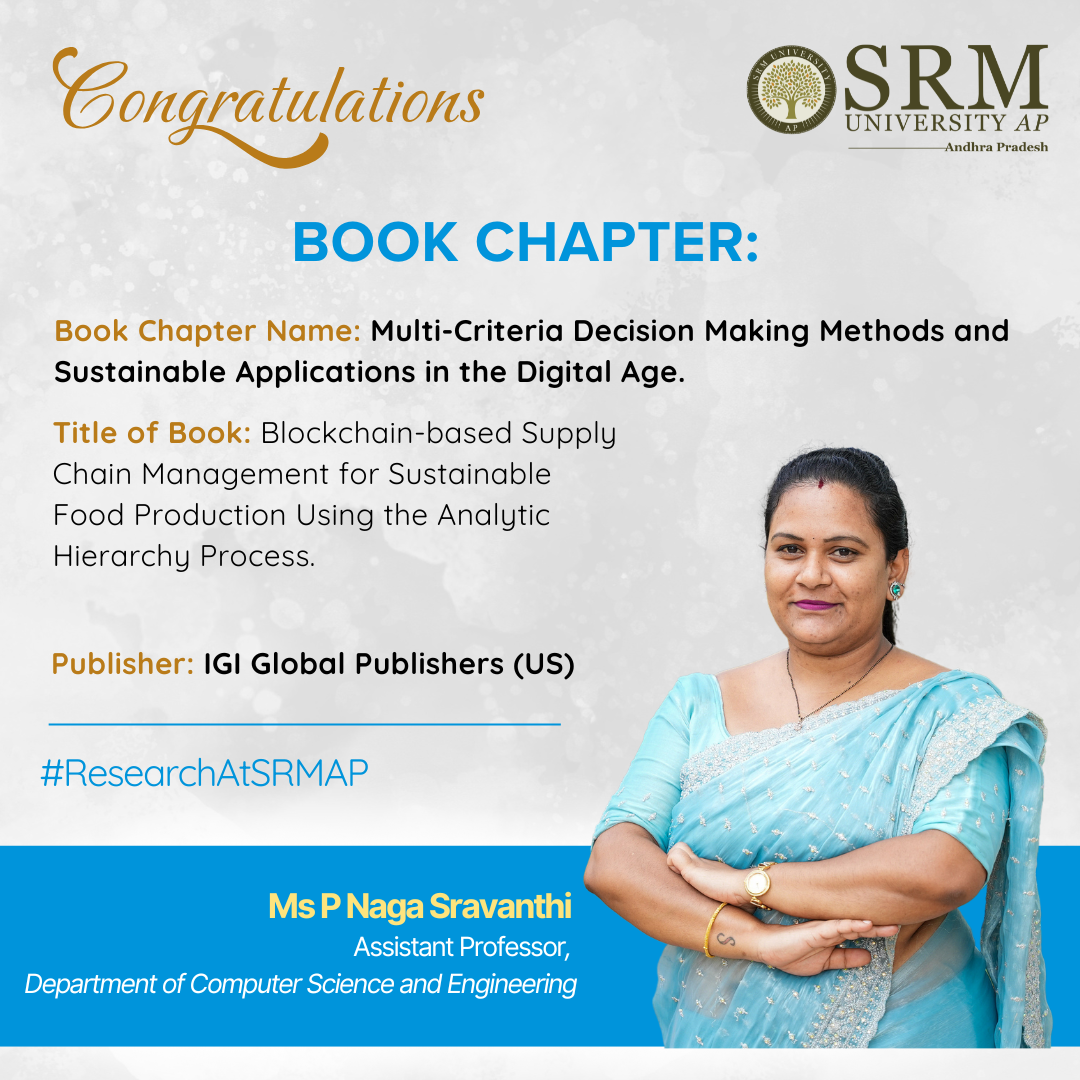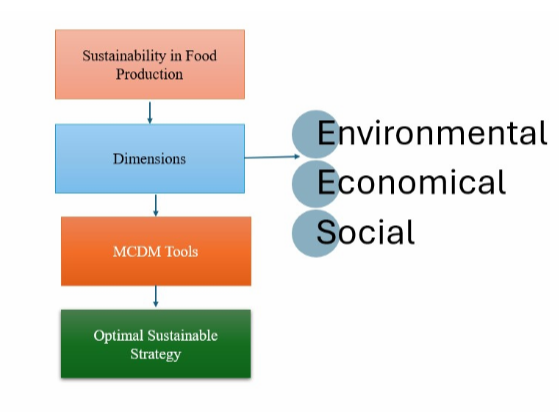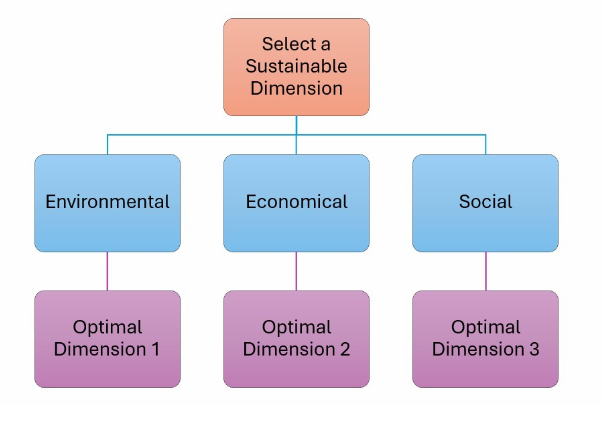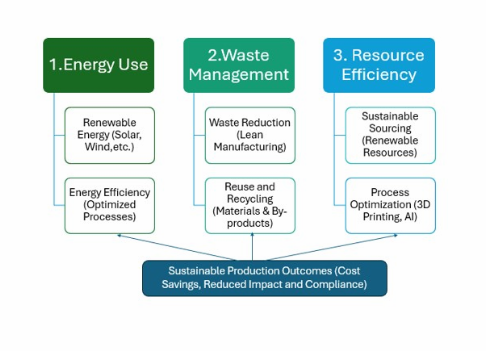 Have you ever questioned whether the food on your plate is truly fresh—or where it was grown?
Have you ever questioned whether the food on your plate is truly fresh—or where it was grown?
The efficiency of our food supply chain is often undermined by challenges such as limited traceability, poor communication, and rising labor costs. These disruptions can lead to food safety concerns, spoilage, and increased costs. Hence there’s a growing need for better tracking and transparency throughout the entire supply chain.
Addressing these issues, P Naga Sravanthi, Assistant Professor in the Department of Computer Science and Engineering, published a chapter titled “ Multi-Criteria Decision Making Methods and Sustainable Applications in the Digital Age” in the book Blockchain-based Supply Chain Management for Sustainable Food Production Using the Analytic Hierarchy Process (AHP) by IGI Global Publishers (US).
The chapter explores how blockchain can be incorporated into the food supply chain and used to track every step of the food journey. The Analytical Hierarchy Process (AHP) helps assess critical metrics like quality, cost, or environmental impact. AHP provides a transparent platform to improve food systems and make sustainable choices for all stakeholders, including farmers, sellers, and consumers.
Abstract:
This chapter discusses how blockchain technology can build transparent and trustworthy food supply chains. It combines blockchain technology with the Analytic Hierarchy Process (AHP), a structured method to rank and prioritise sustainability goals, including reducing waste, ensuring freshness, and supporting local farmers. This approach guides food producers in making smarter, eco-conscious decisions, helping them align with global sustainability goals while improving production and distribution efficiency.
Societal Impact:
This research can make a massive difference in the real-world scenario. Farmers can trace their products, suppliers can avoid fraud, and customers can get safe and fresh food. It also supports small-scale producers by giving them a voice in the supply chain. Governments and companies can use this system to ensure sustainability, reduce food loss, and build public trust in food safety and fair trade.
Future Plans :
Looking ahead, the goal is to test this blockchain-AHP model in farm-to-fork supply chains, especially in rural or emerging markets. Collaborations with agricultural cooperatives and food tech startups are in progress. Machine learning will also be integrated to improve real-time decision-making. Future research will focus on policy frameworks and community-based blockchain adoption to expand its impact on sustainable food production.




